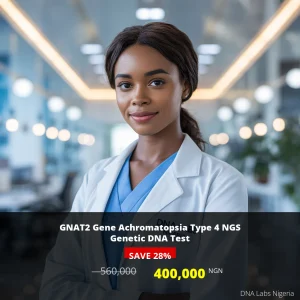UQCC2 Gene Mitochondrial Complex III Deficiency Nuclear Type 7 NGS Genetic DNA Test
The UQCC2 Gene Mitochondrial Complex III Deficiency Nuclear Type 7 NGS Genetic DNA Test is a cutting-edge diagnostic tool that plays a critical role in identifying mitochondrial disorders. This test utilizes Next Generation Sequencing (NGS) technology to analyze the UQCC2 gene, which is essential for mitochondrial function and energy production in cells. Understanding the genetic basis of mitochondrial diseases is vital for effective management and treatment.
What the Test Measures
This test specifically detects mutations in the UQCC2 gene, which may lead to mitochondrial complex III deficiency. By identifying these genetic anomalies, healthcare providers can better understand the patient’s condition and tailor treatment plans accordingly.
Who Should Consider This Test?
Individuals exhibiting symptoms such as developmental delays, muscle weakness, or organ dysfunction, particularly in pediatric patients, should consider this test. Additionally, those with a family history of mitochondrial disorders or related symptoms may benefit from genetic testing.
Benefits of Taking the Test
- Accurate diagnosis of mitochondrial disorders.
- Guidance for personalized treatment options.
- Understanding hereditary patterns in families.
- Peace of mind for patients and families through informed decision-making.
Understanding Your Results
Results from the UQCC2 Gene test will provide insights into the presence of genetic mutations. A genetic counselor will help interpret these results, offering guidance on potential next steps, including treatment options or further testing.
Test Pricing
| Price Type | Amount (NGN) |
|---|---|
| Discount Price | 400,000 NGN |
| Regular Price | 560,000 NGN |
Book Your Test Today!
To schedule your UQCC2 Gene Mitochondrial Complex III Deficiency Nuclear Type 7 NGS Genetic DNA Test, please contact us at +2348110567037. Our friendly staff is ready to assist you with the booking process and any inquiries you may have.
Turnaround time for results is approximately 3 to 4 weeks, and the test can be performed using blood samples or extracted DNA. Prior to testing, a genetic counseling session is recommended to discuss the clinical history and draw a pedigree chart of affected family members.







